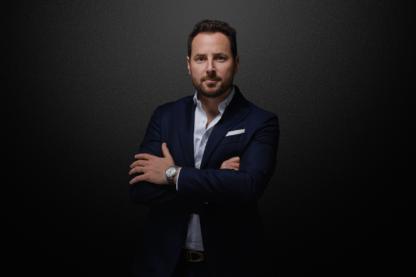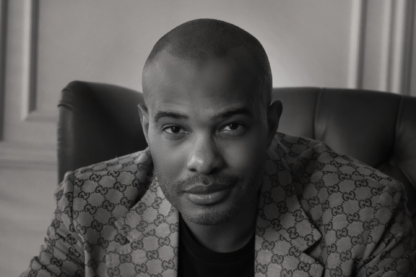Great luxury brands don’t just train staff; they train emotional intelligence. Michaela Merk, PhD, CSP, GSF, is a leading expert in Relational Intelligence, teaching global brands how to transform everyday encounters into lasting emotional bonds. As the author of Luxury Sales Force Management: Strategies for Winning Over Your Brand Ambassadors and host of the Luxury Leadership Talks podcast, Merk is trusted by the world’s top luxury brands, including Hermès and Louis Vuitton, for her expertise in turning client interactions into lasting brand loyalty.
In this exclusive conversation with Alexander Chetchikov, President of the World Luxury Chamber of Commerce, Merk offers powerful insights from her decades-long career in luxury training and academic leadership. Her message is clear: personalization, passion, and purpose are what today’s premium clients value most.
Alexander Chetchikov: Michaela, your approach to Relational Intelligence has had a significant impact on leadership and customer engagement. How do you define relational intelligence, and why is it critical for leaders and businesses in the luxury industry today?
Michaela Merk: Relational Intelligence is our ability to connect with a wide range of people with whom we want or need to build relationships. This diversity may relate to gender, age, profession, personality, but also to tastes, desires, or cultural background.
The luxury industry is known for its pursuit of excellence. Its products and services are sought after by the most demanding clients, who expect brands to deliver impeccable service of the highest standards. Of course, product quality is essential, but what matters even more is the personal bond they can form with their sales or personal advisor. The most successful sales teams I have trained and observed over the past 20 years master Relational Intelligence brilliantly, showing an exceptional ability to adapt to these highly discerning luxury clients.
My new book, Le Pouvoir de l’Intelligence Relationnelle (The Power of Relational Intelligence), highlights 30 golden rules for successful leadership. Many examples are drawn from the luxury industry.
AC: You’ve worked with some of the most renowned luxury brands. Can you share a key lesson or strategy that these brands use to maintain customer loyalty, and how can smaller businesses or startups apply this to their customer experience?
MM: Luxury clients expect highly personalized, individual service.
They do not appreciate being treated like everyone else. That’s why the most successful luxury brands place great importance on developing tailored experiences: a sales ceremony in which the client’s personality is decoded, a gesture such as adding a personal note to a product, a handwritten thank-you card after a purchase, an invitation to exclusive and confidential events to reward client loyalty, or gifts that are not standard but adapted to individual preferences detected during the client’s visit. Every detail is carefully noted and stored in a highly refined database to maintain a personalized relationship with the customer. This enables teams to better anticipate and prepare for the client’s next visit to the store or brand environment. This approach applies not only to luxury boutiques but also to fine dining, high-end hospitality, and any setting where clients expect more than the standard.
AC: As a professor and executive coach, how do you integrate academic theory with the practical challenges business leaders face, and what is one concept from your teachings that has proven especially valuable in real-world applications?
MM: Most iconic luxury brands boast a long and remarkable history spanning one, two, or even three centuries. Legendary maisons like Hermès, Cartier, and Louis Vuitton have mastered the art of building desirability around their products and services.
In my research, I sought to identify the key elements that make luxury brands so desirable that money becomes secondary; what truly matters is the “must-have” factor. I found that six main dimensions consistently stand out:
- D for DNA – a deep and ongoing connection to the brand’s origins and its founder
- E for Emotion – the use of multi-sensory marketing to create meaningful experiences
- S for Surprising Stories – captivating narratives that spark curiosity and attachment
- I for Innovation – staying ahead of trends and continuously reinventing
- R for Rarity – cultivating exclusivity and uniqueness
- E for Excellence – a relentless pursuit of the highest standards
I have developed a conference built around these concepts to help brands and companies enhance their own desirability, even if they are not positioned as luxury brands. The title of the conference is:
“Selling Premium: Elevating Your Brand with the Secrets of Luxury.” Find out more about this conference using this link: www.michaela-merk.com
AC: In your podcast “Luxury Leadership Talks,” you’ve engaged with top CEOs. What common traits or behaviors do you believe define the most resilient and influential leaders in the luxury sector, and how can emerging leaders cultivate these traits?
MM: I developed this filmed podcast to give inspiring leaders and personalities who shape the luxury world a platform to share their vision and wisdom.
Interviewing these remarkable individuals revealed that they all share three key qualities:
- Passion – They all spoke with a sparkle in their eyes, expressing deep love for their sector, their brands, their teams, and their clients.
- Heritage – They were eager to share their thoughts publicly on my podcast because they are passionate about passing on their knowledge to young professionals and future leaders in the luxury industry.
- Excellence – They all emphasized that success in the luxury world demands a relentless pursuit of excellence and hard work. Since nothing in luxury can remain average, there must always be a drive to push beyond limits.
If you want to dive into the captivating content of each episode, here is the direct access: https://merk-vision.com/podcasts/
AC: Your book “Luxury Salesforce Management” provides insights into customer-first approaches. What are the key mistakes luxury sales teams make when trying to engage high-end clients, and how can they overcome these challenges to ensure a more personalized and successful sales approach?
MM: I have observed several recurring mistakes among sales teams serving luxury brands and catering to highly demanding customers.
The most critical mistake is when sales advisors place themselves above the brand, which often comes across as arrogance. Giving clients the impression that they are special simply because they represent names like Chanel or Prada does not mean they are Gabrielle Chanel or Miuccia Prada. On the contrary, the best sales teams remain humble, serving the brand and its mission with full respect for its values and heritage.
Another common mistake, closely related, is when salespeople become so passionately identified with the brand that they lose touch with their own personality, immersing themselves entirely in the brand’s identity. This becomes problematic when they eventually leave the brand – many find themselves lost, having neglected to nurture their own unique personal identity.
Therefore, one of the greatest challenges when working for luxury brands is finding the right balance between identification with the brand and the preservation of one’s personal brand.
Thank you, Michaela!
Michaela’s sharp blend of academic rigor and industry insight has made her a sought-after voice in luxury leadership. From decoding the subtleties of high-end service to building emotional loyalty, her work champions the human side of excellence. Stay connected with her via LinkedIn and explore her latest projects at michaela-merk.com.
To discover more thought leadership from industry experts like Merk, visit https://worldluxurychamber.com/insights-news/





